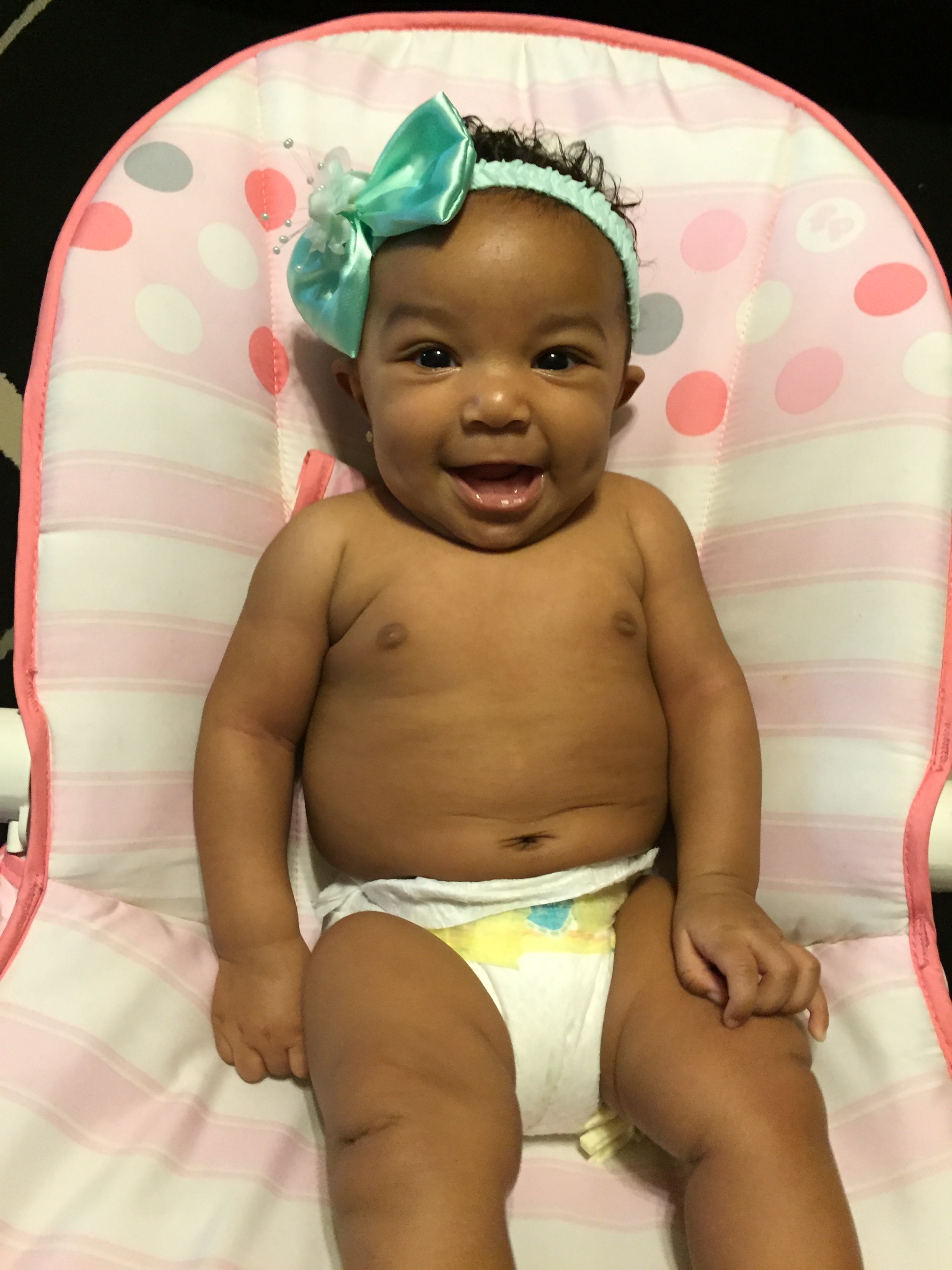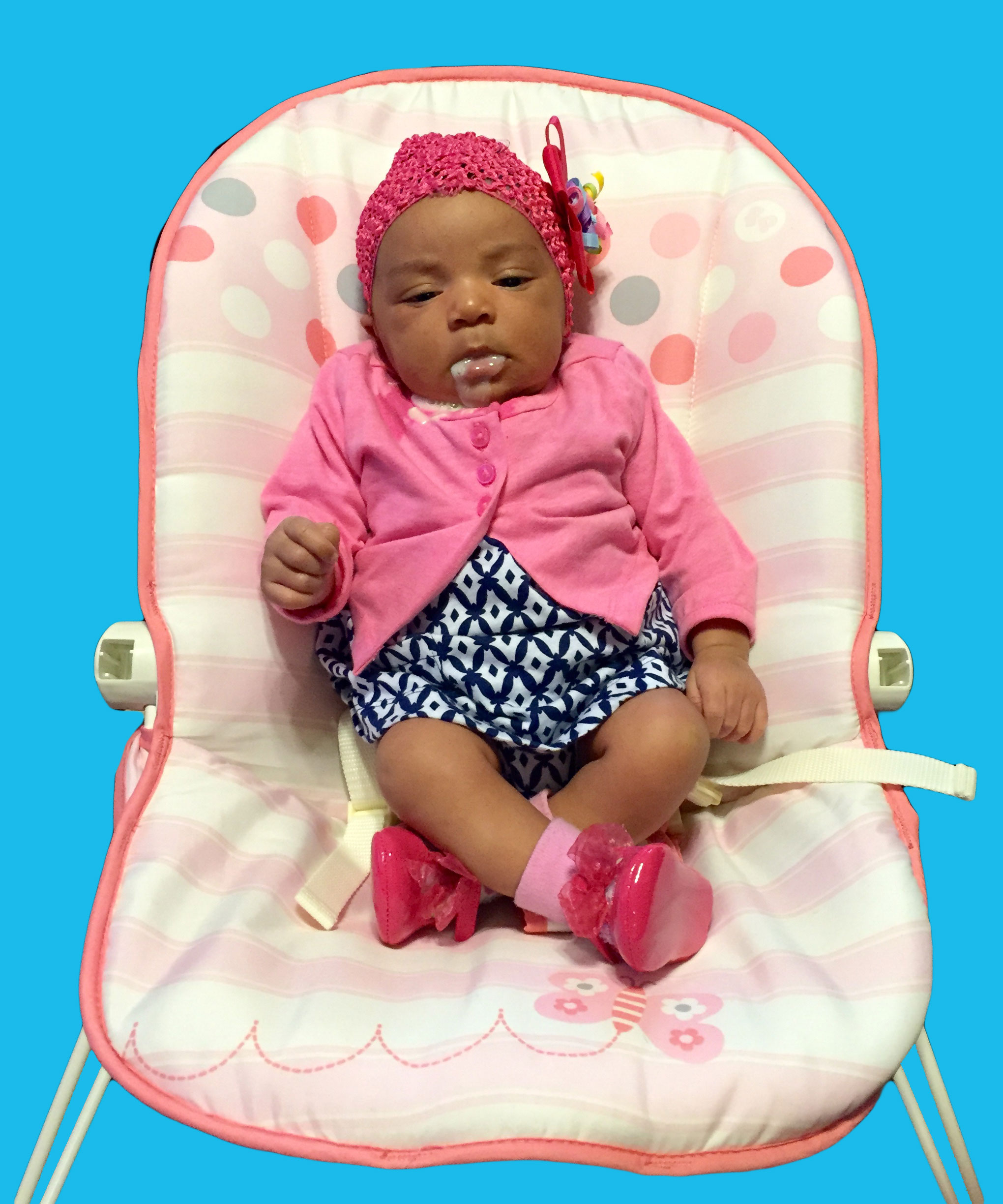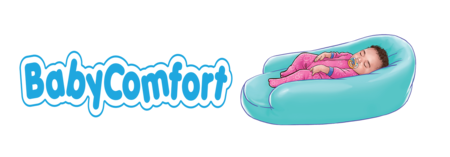The Happy Spitter

The Happy Spitter
One day, when our baby, Seraphina, was a month old, she was placed on her mother’s lap and latched on to the breast. Thirty minutes later, the baby was still sucking passionately, like she was competing at a breastfeeding contest.
That’s enough! My wife slipped a finger under the baby’s lips and plucked her mouth from the nipple. As if on cue, Seraphina belched. Next came the milk, dribbling from the mouth and nose of our breastfeeding champ.
My wife gasped. She sat the baby up against her chest. The baby coughed once. Her face took on a purplish hue. Her eyes stared blankly at the ceiling.
For a few seconds, my wife was frozen on the spot like a stone statue, gazing at the baby, unsure of what to do. She blew twice on Seraphina’s face. The baby stared on without blinking. My wife held and shook the baby’s shoulders. Seraphina’s arms dropped down to her side, as if they were flesh wrapped around cotton stuffing like that of a rag doll.
My wife screamed.
Seraphina sneezed once, spurting white liquid from her nose. Then she looked at her mother and smiled. It was as if she was saying, I’m sorry, it was all a joke.
I walked in to see my baby smiling. My wife sobbed as she explained all this to me, while the happy spitter had a contented grin on her face.
After that, we reduced our baby’s feeding time, and this never happened again. Fifteen minutes on each breast is enough!

Here is a medical summary of the happy spitter.
The happy spitter is a baby, usually less than three months old, who feeds and then spits up some liquid about thirty minutes to an hour afterward.A loud belch often heralds the spit up. Some of this spit up is not vomited but remains in the baby’s mouth.
This reflux is often whitish and stringy and may appear gross to you, especially if some of this reflux lands on your cloth or the warm liquid splatters your face. But this is often not gross for the baby. You often see the happy spitter sucking on his tongue, licking his lips, and re-swallowing this reflux. They often ignore the mess on their cheeks, which may be the only evidence of this everyday event. Babies usually do not cry during or after this form of spitting up. In fact, they often appear relieved from the release of the pressure on their overfilled stomachs and will continue their play as if nothing has happened. A soiled bib is not an issue for them, and if some of this reflux gets on the floor, the baby may dip his/her hand into it and often spread it around. This event is called physiologic reflux, and it is common in babies less than six months old.
The above scenario is in contrast to the unhappy spitter. The unhappy spitter may show several signs before the event. The baby may arch his/her back, may hold his breath, or his color may change, and he may appear restless or agitated. He may start to cough during or after the event. This is a more serious reflux and needs an evaluation by a healthcare professional or pediatrician. Several factors should be considered in this case. Is the baby over-feeding? This is the most common reason. Does the baby have an obstruction? Is the baby premature? These are some of the questions to consider in the unhappy spitter that may require intervention.

Andrew Faniku MD
Andrew is a committed family man and pediatrician who is focused on improving your baby’s comfort. In his spare time, he creates acrylic paintings and writes short stories. He is also learning to use social media. Please connect with him:
Disclaimer
We do not offer you any warranty or guarantee related to the information that we provide. We specifically disclaim any warranties; express or implied, including implied warranties of merchantability or fitness for a particular purpose. We encourage you to confirm the information made available or otherwise obtained through this App with your physician or another qualified healthcare professional.
Consumers who use this free App do so at their own risk. Mothers who have babies with any type of medical condition are specifically cautioned to seek professional medical advice when using our app. For medical concerns, including decisions about medications and other treatments, users should always consult their physician or other qualified healthcare professional.
Terms of Use
By using this website and our App you agree to these Terms. If you do not agree to the Terms of Use in their entirety, please close this website and do not use our mobile app.
User’s Acknowledgment and Acceptance of Terms
Faniks Enterprise. LLC, (“Us” or “We”) provides educational contents to you, the user, subject to your compliance with all the terms, conditions, and notices contained or referenced herein (the “Terms of Use”), as well as any other written agreement between you and us. In addition, when using particular services or materials on this site, users shall be subject to any posted rules applicable to such services or materials that may contain terms and conditions in addition to those in these Terms of Use. All such guidelines or rules are hereby incorporated by reference into these Terms of Use. We reserve the right to update these Terms of Use at any time and your use of the app after any subsequent update shall serve as your acceptance of any new terms, changes to terms, or removal of terms.
The contents of this website are mere suggestions to guide you in evaluating your baby’s needs. These suggestions should not replace your doctor’s recommendation regarding feeding your baby.
The contents of the website and our app are for informational and educational purposes only. The content is not intended to be a substitute for professional medical advice, diagnosis, or treatment. The information available through this app is intended for mothers and parents and while we hope you find the information helpful, you should remember that it is not meant to serve as a substitute for your health care providers advice. THIS IS NOT IN ANY WAY TO BE CONSTRUED AS MEDICAL ADVICE. You should not use this app to replace any relationship with your doctor or other qualified healthcare professional. Always seek the advice of your physician or other qualified health provider with any questions you may have regarding your baby’s weight or feeding. Never disregard professional medical advice or delay in seeking it because of the site.
